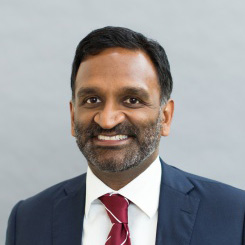 Even though the author of this essay in Catholic World Report is careful to make distinctions, this would seem to be the choice: Thomas Aquinas or Ron Paul. It is, in fact, how the indispensable Real Clear Religion website framed the debate this morning.
Even though the author of this essay in Catholic World Report is careful to make distinctions, this would seem to be the choice: Thomas Aquinas or Ron Paul. It is, in fact, how the indispensable Real Clear Religion website framed the debate this morning.
To compare a religion with an intellectual and moral tradition that goes back thousands of years with a quasi-political movement that is more known for what it is against than what is for is worse than comparing apples and oranges. Yet the Catholic view of the world does seem to be in tension with one that values freedom most of all and pleads agnostic on other important issues. Brian Jones focuses on three areas of disagreement: 1) the necessity of government, 2) law as moral pedagogy and 3) the proper order of politics.
Having studied both economics and political philosophy as well as worked in the field of Catholic social teaching for the Holy See, I’m more than a bit interested in the matter. I readily admit to having libertarian instincts and preferences in economics, while also believing in the primacy of the political in a social order that has a supernatural end. Jones puts it well when he writes, “In Catholicism, there is always the realization that in order for politics to be itself, and accomplish what it is meant to in accord with man’s nature as a social and political animal, it must point to that which is ultimately not political.”
So does that make me suspect on Catholic AND libertarian grounds? Or can I coherently believe in free markets and the truth about God and man as taught by the Church? Catholic teaching thankfully does not require its adherents to share the same opinions on prudential matters. I know this may seem like a cop-out to the more strictly (harshly?) principled, but it also happens to better reflect the realities of the messy world we live in. Or am I alone in this view?

